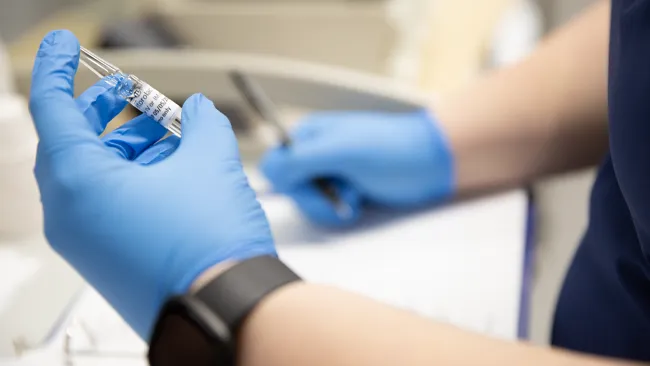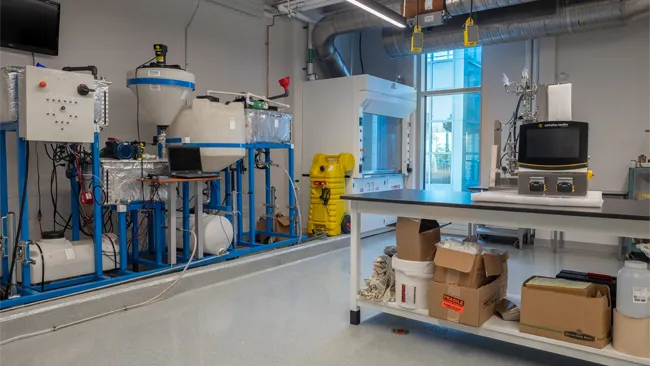
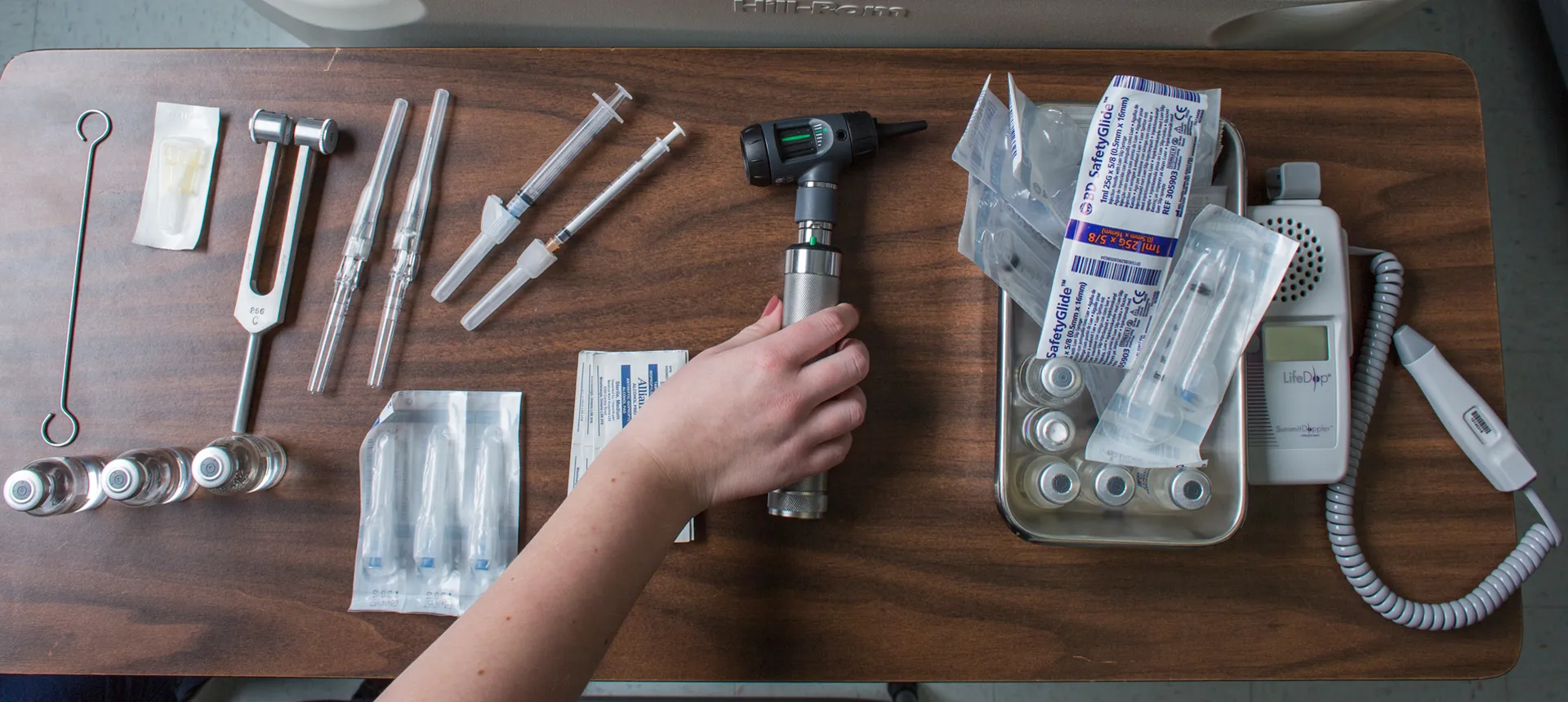
Pre-Health Sciences Pathway to Certificates & Diplomas
Overview
Better prepare yourself for admission to diploma programs in Health Sciences or programs with a biological or chemical sciences focus. Gain confidence and a competitive edge in earning admission to the health program of your choice.
This program is designed to prepare graduates for admission to certificate or diploma programs at Ontario colleges in the health sciences or other related programs in the biological or chemical sciences. Graduates will also gain a competitive edge in earning admission to the health diploma program of their choice.
The program provides students with the knowledge and skills in communication, mathematics, human anatomy, biology and chemistry needed to be successful in health and science-related college programs.
Along with the competitive edge from the bonus points in earning admission to the health diploma program of choice, students develop enhanced study and personal skills which are vital for success at the college level.
Please be aware that this program cannot be used to gain admission into the Bachelor of Science - Nursing (BSNL) program. Students wishing to apply to the BSNL degree program should take the Pre-Health Sciences Pathway to Certificates & Diplomas (PHDP) program.
The Benefits of this One-Year Certificate Program
It's important to note that the Pre-Health Sciences Pathway to Certificates & Diplomas program does not guarantee entrance into any Lambton College program, since we rank our applicants in popular programs.
However, applicants who are in the process of completing, or who have successfully completed, the Pre-Health Sciences Pathway to Certificates & Diplomas program at Lambton College will receive 10 bonus marks in their ranking for all highly competitive programs (excluding the Bachelor of Science-Nursing degree program).
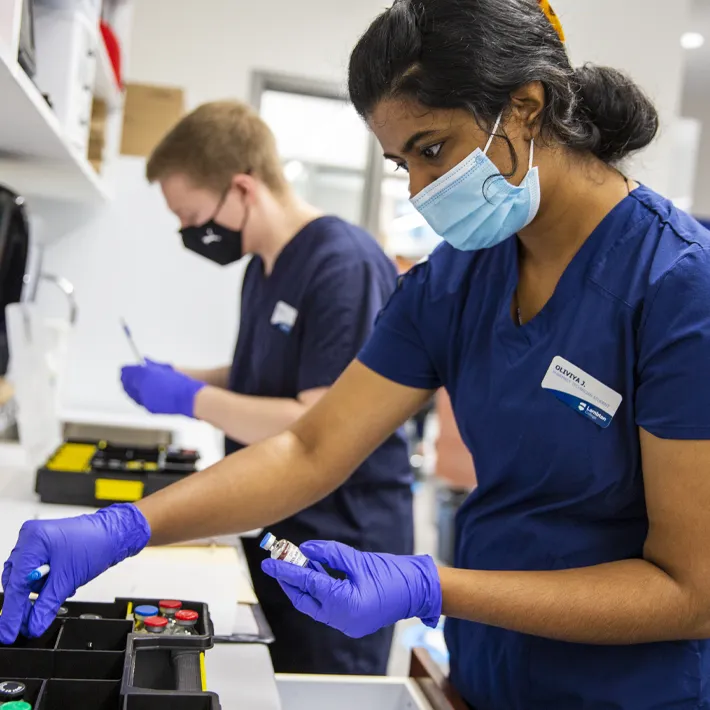
Admission Requirements
O.S.S.D. or equivalent with:
- Grade 12 English C or U
- Grade 11 or 12 Mathematics C or U
Mature Student Assessment for this program is available in the subjects of English and Mathematics for the purpose of demonstrating proficiency in these required admission subjects. For all other admission requirements, applicants must complete the required course(s) as listed above. For more information, please contact counselling@lambtoncollege.ca. Review the Mature Student Admission process.
Academic admission requirements can be obtained through Academic Upgrading and the Pre-Programs at Lambton College.
Costs
- Year 1 $4,156.71
Please Note: These fees apply to the 2025-2026 academic year and are subject to change. Fees do not include books (unless specifically noted), supplies or living costs.
Additional Fees
-
Textbooks (Term 1)$750.00
-
Textbooks (Term 2)$150.00
-
Supplies (Term 1)$125.00
-
Supplies (Term 2)$75.00
Technology Requirements
In order to keep pace with the requirements of each and every course in your program, Lambton College requires that each student have access to a laptop while studying at our college.
Labs & Equipment
Courses
Cellular Processes
This introductory biology course focuses on the cellular processes involved in biological systems, including anatomical, physiological, microbiological, and environmental. Students study concepts applying basic chemistry and biochemistry to the life sciences and allied health fields. Core topics include the characteristics of life, cell structure and function, cellular respiration, reproduction and genetics. Selected laboratory exercises are performed to introduce laboratory safety and provide practical training on topics discussed in class. Students are introduced to the basic processes of cellular biology, including membrane transport, aerobic and anaerobic physiology, enzyme-catalyzed activities, and protein synthesis. Students acquire basic laboratory skills through the investigation of factors that influence cellular activity. An essential foundation is built for subsequent studies in such areas as anatomy, physiology, biochemistry, microbiology, and the allied and environmental health fields.
Basic Chemistry I
This course is intended to provide the student with an introduction to basic chemical principles and skills. Topics include classification of matter, physical and chemical changes, chemical nomenclature, writing balanced chemical equations, and gas laws. Students perform calculations of quantities of substances consumed and produced in chemical reactions in terms of mass, moles, and gas volumes. Laboratory exercises complement theoretical concepts and develop good, safe laboratory practices through hands on activities and chemical experimentation. This course prepares students for CHM 2004, Basic Chemistry II, in which concepts relating to organic chemistry and aqueous solutions are developed.
Workplace Communications Applications and Analysis
In today's management and administration workplace, having strong computer skills is essential. This course provides students with resources and guidance to develop skills in Microsoft Office applications, focusing on three key areas: Word, Excel, and PowerPoint. While learning about these programs, students develop skills in time management, accountability, and their ability to follow direction.
Mathematics for Pre-Health Sciences I
By the end of this course, students will have demonstrated the ability to evaluate a variety of arithmetic and algebraic expressions and apply these principles to typical problems that arise in the health care fields. Concepts studied include numeracy fundamentals; systems of measurement and dimensional analysis; algebra, with an emphasis on analytical techniques; and geometry. Students will develop essential critical thinking and problem-solving skills through exposure to application problems, including dosage calculations and solution dilutions. Students will use numerical methods along with graphs to describe the relationship between quantities.
Workplace Communications
In this course, students write and speak in response to realistic workplace scenarios to build practical communication skills. They produce, revise, and edit written communication geared to the workplace and practice the oral communication and effective listening skills that will help them succeed in professional environments.
Critical Thinking & Writing
This writing course challenges students to explore diverse opinions and articulate their own perspectives clearly and persuasively. Through critical reading, students will develop skills in synthesis, analysis, comparison, and response, striving for clarity and diplomatic expression of their opinions based on factual evidence. Students will practice various rhetorical strategies of persuasion and hone their writing to ensure precision and accuracy in their messages. This course lays the foundation for a subsequent research-writing course, equipping students with essential skills for academic success.
Introduction to Biology
This course is designed to introduce the student to basic human anatomy and physiology through the study of organ systems including the following: nervous, circulatory, respiratory, digestive and urinary. General organization of the body, cells, tissues, and organs will also be considered.
Mathematics for Pre-Health Sciences II
By the end of this course, students will have demonstrated the ability to evaluate a variety of algebraic expressions and apply these principles to typical problems that arise in the health care fields. Concepts studied include algebra, with an emphasis on analytical techniques; and evaluating systems of linear equations. Students will develop essential critical thinking and problem-solving skills through exposure to application problems, including concentrations and pH. Students will use numerical methods along with graphs, charts, and tables to effectively calculate the empirical and theoretical probability of simple events using key rules of probability and apply descriptive and inferential statistics to applications from the health care fields.
Basic Chemistry II
This course continues the introduction to chemistry started in CHM 1005. New topics include chemical bonding and molecular structure, solutions, acid/base chemistry and organic chemistry. The laboratory portion of the course applies the theory concepts and expands the student's knowledge of proper lab techniques through qualitative and quantitative analyses. This course, along with the CHM 1005 prerequisite, provides a solid foundation in basic chemical principles for students entering the technology and health sciences fields.
Introduction to Health Care
In our increasingly complex world there is a growing awareness that health care delivery is in a crisis situation. In order to make the best decisions, health care professionals must be aware of how our health care system works, where it has come from, the future of health care, and where health professionals fit within the bigger picture. This course is designed to introduce the student to these concepts by examining the interrelationships between the individual, community and international health care. Also covered in this course is, the role stress plays in health, alternative and complementary health care, as well as personal and professional ethics, attitudes, and values.
Physics for Pre-Health Sciences
Students apply critical thinking and problem-solving techniques to physics concepts related to the health science field. Concepts studied include kinematics, forces, work, energy and power, thermodynamics, fluids and pressure, nuclear physics, electrostatics, magnetism, waves and electromagnetic radiation.
Lighten your Course Load with Credit Transfer
By successfully completing ENG-1033 students will have the opportunity to transfer that credit and reduce their course load in the first term of a Lambton College health program after completing the PHSP program.
Contact
School of Fire Science, Health & Community Services
Program Information
After Graduation
Pathway Opportunities
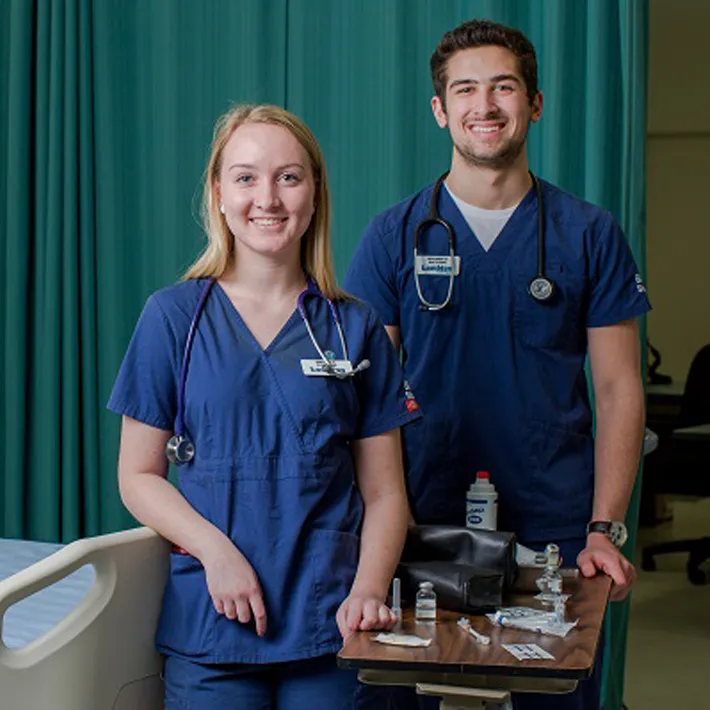
Our graduates transfer into a variety of health-related programs both at Lambton College and other Ontario colleges.
More Information
Skill Demands
Some students with disabilities may require academic accommodation to equalize opportunities to meet the academic demands of a course or a program.
Technology Requirements
It is recommended that students purchase a laptop with a Windows operating system.
Internet Speed Requirements
For best performance for students learning remotely, an internet connection with a minimum of 40 Mbps download and 10 Mbps upload speed is recommended in order to effectively use video conferencing and remote lecture delivery software as well as, other online resources remotely. Due to the large area over which students may be dispersed, we are unable to recommend a specific provider, so you will need to inquire around your area to find one that best suits your needs.
Minimum Laptop Requirements
In order to access the internet and virtually-delivered software and courseware, student laptops should include the following at a minimum. By meeting the following specifications, students will be equipped to access software and courseware on their laptop through the internet:
- Intel i5 8th Gen Processor or equivalent
- 16 GB of RAM (with a minimum of 8 GB)
- 100 GB HDD or more
- HD Graphics
- Webcam with a microphone
- Wireless 802.11n/ac 5ghz capable
- Windows Operating System (Windows 11)
Please note that Chromebooks and MacBooks may not support all software required for your program; students should verify compatibility with their professors.
Software
To ensure students are getting the most our of their classroom experience, some software will be required.
Lambton College has made this software easily accessible online. Students can leverage our Microsoft Office 365 software packages and services. In addition, much of the software you require for your courses will be available on demand for use on any device - on or off campus.
